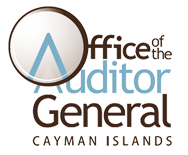Fighting Corruption in the Cayman Islands
Progress has been made in developing a framework to combat fraud and corruption in the Cayman Islands but more needs to be done.
The report “Fighting Corruption in the Cayman Islands,” issued by the Office of the Auditor General (OAG) today assesses if the mechanisms for preventing corruption in the Cayman Islands are effective.
The report looks at the progress made in developing a national framework for fraud and corruption, including legislation, anti-corruption bodies and policies and procedures.
“I am pleased to report that progress has been made in developing a national framework for fighting fraud and corruption in the Cayman Islands, including passing legislation, setting up anti-corruption bodies and extending the remit of others, and developing and strengthening government policies and procedures.” Ms. Winspear notes. “However, these measures do not mean that the Cayman Islands are free from fraud and corruption.”
The report highlights that the Cayman Islands has a range of legislation in place and uses a wide-ranging definition of corruption. It reports that the Anti-Corruption Commission and its work with other agencies, including the OAG and the Royal Cayman Islands Police Service, play a significant role in the fight against fraud and corruption.
“The Cayman Islands now have a wide range of laws that contribute to the fight against corruption, including the Anti-Corruption Law,” Ms. Winspear explains. “However, a key component in the legislative framework is missing. The Standards in Public Life Law, which was passed by the Legislative Assembly in 2014 has still not been brought in to force and I urge the Government to focus on doing this quickly”
The report also looks in more detail at the arrangements in place for preventing fraud and corruption in the planning sector, specifically the Department of Planning, Central Planning Authority and Development Control Board.
The Auditor General adds. “My Office reported a number of risks of corruption in the planning sector in 2015. I am pleased to note that changes have been made and operations are now more transparent, although there is still room for improvement”
More information about the report can be obtained by contacting Sue Winspear at (345) 244-3201 or Angela Cullen, Director of Performance Audit at (345) 244-3220.
Notes to the editor:
- The Anti-Corruption Law 2008 was brought into force on 1 January 2010. A further twelve laws are in place that also have provisions relating to combatting corruption (summarised in Exhibit 5 on pages 16 and 17 of the report).
- The Anti-Corruption Commission was established in 2010.
- Planning decisions in the Cayman Islands are made by three bodies: Central Planning Authority (CPA) makes planning decisions for Grand Cayman; the Development Control Board (DCB) makes planning decisions for Cayman Brac and Little Cayman; and the Department of Planning (within the Ministry of Commerce, Planning and Infrastructure in the Cayman Islands Government) supports the CPA and DCB and grants some planning permissions.
